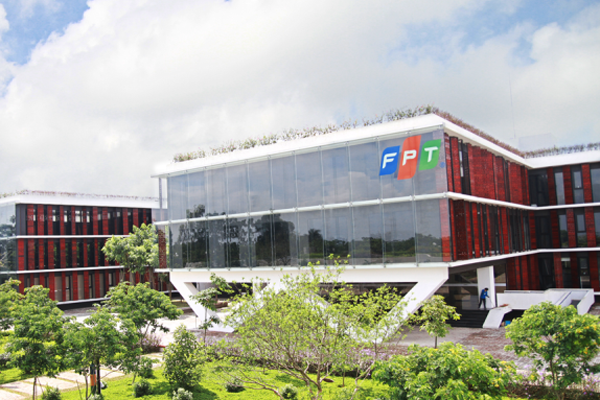The road to turn Vietnam into an AI leader in Asean is paved by FPT Software

Vietnam hopes to be among the top four countries in Asean when it comes to artificial intelligence advancement and FPT Software is extensively pushing for it.
FPT Software has also been heavily investing in AI R&D, to assist Vietnam in being in the top 50 of the world by 2030, in terms of AI research and development as well as applications.
As the first company in Southeast Asia to enter the Mila partner network, the world’s largest academic lab specialized in deep learning, FPT Software plans to deliver more real-world AI applications, while building a world-class AI center, opening up opportunities for the company to enhance AI capabilities and talents.
In 2021, the Vietnamese government issued a national strategy that aims to gradually turn the country into an innovation and artificial intelligence hub in ASEAN and the world by the end of this decade. The strategy particularly intends for Vietnam to be among four leading countries in ASEAN and 50 nations globally in terms of AI R&D and application over the next few years. There has been one company that has been paving a road for the country to achieve its goal–FPT Software.
As Vietnam’s largest ICT company, FPT Software has not been resting on its laurels when it comes to digital transformation — and especially in the field of AI. In fact, in our part one interview with FPT Software, we spoke to its Global Director of Digital Transformation Frank Bignone and discussed the company’s ambitious plan in turning the nation into the next IT outsourcing powerhouse.
The interview with FPT's Chief Artificial Intelligence Officer Nguyen Xuan Phong was held on the occasion of the inauguration of FPT’s new headquarters in Hanoi. Themed as “Thrive in the new future,” the event included a technology conference with the participation of executives and experts from global companies such as Accenture, Schaeffler, SAP, Toshiba, Standard Chartered.
How exactly FPT Software is working around AI? What kind of technology are you building around it?
FPT Software has a very accomplished ecosystem for AI and we invest in three key areas. First of all, it is research and development (R&D), since AI is a big deal, we can’t afford to miss out on it. Secondly, we invest in AI services and this means that we help other companies to integrate AI into their business processes since we have data scientists, data engineers, as well as AI engineers and scientists. The talent pools that we have can actually help our clients to enable AI into their organizations.
The third pillar that we invest in is product and solutions. It means that we built AI-enabled products. Currently, my team is building an AI-powered inspection product that helps factories to detect defect products automatically and efficiently. It helps them to make a decision quicker like what to do with the defect products, whether or not to return it or even find the reason as to why the products are defects. That overall helps companies to approach their factory operations differently; by reducing defect rates, improving branding, and improving customer satisfaction.
What kind of companies FPT Software is working with?
FPT software is actually a global company and we have clients from all over the world. Currently, we have 26 offices globally and the majority of our customers are international clients. In Vietnam, we are the biggest corporation for IT service, and we have a significant amount of local clients too.
How has AI grown over the years and where currently AI stands in Vietnam’s economy?
AI is a very important aspect for the Vietnamese government. The country has set off in pursuit of a ten-year plan to become a significant power in the field of AI. Firstly, by 2025 the nation hopes AI will become an important technology of Vietnam and be in the top four countries in the ASEAN while holding a position in the group of 60 world’s leading countries in research, development and application of AI. Come 2030, the nation hopes to be in the top four in ASEAN and top 50 globally.
Last year, Vietnam climbed 14 places to the 62nd in the 2021 Government Artificial Intelligence (AI) Readiness Index, according to an annual index report released by the UK’s Oxford Insights in collaboration with Canada’s International Development Research Center (IDRC). With an overall score of 51.82 out of 100, Vietnam ranked 6th in the ASEAN–the first year our score has surpassed the global average of 47.42.
With the national AI strategy released by the government, we have identified the key areas to invest in such as talent and data infrastructure. That is why companies like FPT Software, as one of the leaders in the field, took on the challenge to help Vietnam to be on the right track.
Do FPT have any specific in-house AI targets to achieve?
For research and development, which is one of the very important aspects, waim to be one of the top 50 labs in the whole world. That will be measured through the number of publications, and patents. However, we definitely cannot do it alone and that is why we have strategic partnerships to help us to go further. So there are two key areas that we have partnerships in; firstly being research and the second is business.
In research, we have partnered with Quebec-based research center Mila in an attempt to enhance our AI expertise and capabilities. For context, Mila is the world’s largest academic lab specialized in deep learning with a community of 450 researchers dedicated to scientific excellence and innovation. FPT is the first company in Southeast Asia to enter the Mila partner network, joining industry giants such as Google, Microsoft, and Facebook, etc.
It is a three-year agreement, signed virtually, which will see the two sides collaborate on a number of areas, including strengthening FPT’s AI expertise and capabilities, strategic consulting to help FPT develop its AI center in central Vietnam, training and exchange of AI talents, etc. The partnership with Mila has helped FPT deliver many more real-world AI applications such as those in natural language processing, smart factory, healthcare, agriculture, and so on.
Of course, it will also help realize FPT’s aspiration to build a world-class AI center and open up opportunities for the company to enhance AI capabilities and talents. As for business, we have partnered with Silicon Valley’s AI and machine vision leader, Landing AI, a few months ago. The plan for both companies is to tap into our AI expertise, deploy end-to-end visual inspection solutions, and promote the adoption of computer vision across industries.
Currently, we are offering an AI solution for smart factories for quality control. It can help factories to understand better how AI can assist in the operation, especially in the quality control.
What sort of industries that mainly approach FPT?
Because AI is like electricity, and electricity is needed anywhere and everywhere, so the industries we target are far-reaching. Firstly, of course is manufacturing, followed by media entertainment where we assist our clients to use AI to create new and even personalized contents. We also target banking whereby in Vietnam, our technology can help to detect fraud, and also help call centers to become more friendly and responsive.
In other industries, we have life science or healthcare. Those are some of the areas that we are bringing AI into. Of course, there are many others, but today those are the very prominent ones.
How did FPT Software maneuver during the pandemic?
Actually, the pandemic promoted more adoption of automation and companies actually realized that if they don’t invest in digital technology, they will lose out. So actually, during the pandemic, we saw an improvement in demand for AI and there are more technology companies adopting AI into their process. So I will say that the pandemic has encouraged a heightened adoption.
How has Vietnam progressed in terms of AI adoption over the years?
In Vietnam, I noticed that it was lagging behind other markets like Japan or North America. Although people are educated and talented here, the adoption rate in Vietnam has never been very high. There are few challenges to that, like the understanding of the technology, the readiness of the infrastructure, and of course, the data. People’s mindset has also been an issue because companies here are not so willing to try something new as opposed to companies in North America. However, despite the slow rate, we have been catching up very well the last few years and I am hopeful that we can catch up.
Source: Techwire Asia








